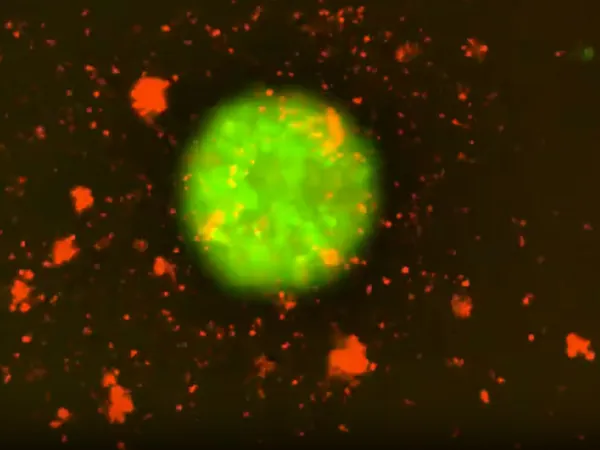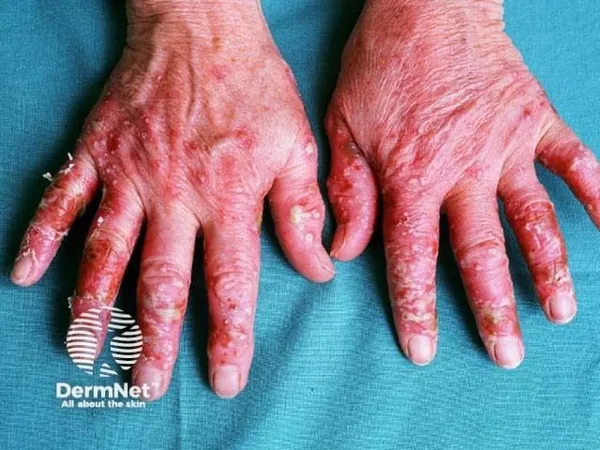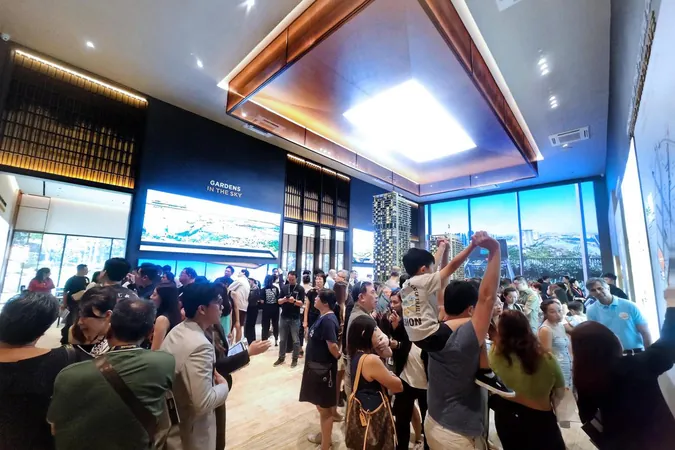
Revolutionary "Smart" CAR T-Cells Set to Transform Cancer Treatment with Lasting Results
2025-04-02
Author: Yu
In an exciting breakthrough for cancer therapy, USC biomedical engineers have developed an innovative breed of immune cells known as the "EchoBack CAR T-cells." These advanced cells are designed to deliver a sustained assault on challenging solid tumors, potentially transforming the landscape of cancer immunotherapy.
The research, featured in the prestigious journal *Cell*, presents a fresh approach to an ongoing battle in oncology: how to treat tumors that typically resist standard immunotherapy methods while ensuring healthy tissue remains unharmed. Chimeric antigen receptor (CAR) T-cell therapy has already proven effective in treating blood cancers like leukemia, but its success in solid tumors has been limited until now.
Under the expert guidance of Peter Yingxiao Wang, the Dwight C. and Hildagarde E. Baum Chair in Biomedical Engineering at USC's Alfred E. Mann Department of Biomedical Engineering, the Wang Lab has unlocked the potential of these enhanced EchoBack-CAR T-cells. Remarkably, these engineered immune cells can act on tumor cells up to five times longer than traditional CAR T-cells, thanks to the ability to activate them using focused ultrasound technology.
Lead researcher Longwei Liu, an assistant professor at the USC Viterbi School of Engineering, emphasizes the efficiency of the new CAR T-cells. "While first-generation ultrasound-controllable CAR T-cells extended treatment safety, they typically had a short lifespan of about 24 hours," Liu explained. "In contrast, our EchoBack CAR T-cells, activated by ultrasound at the tumor site, can seek and destroy cancer cells for an impressive five days without fatigue. This could drastically reduce the frequency of hospital visits for treatment."
This breakthrough means that patients could potentially receive treatment less often—perhaps only once every two weeks—significantly enhancing their quality of life during therapy.
The technology behind these smart CAR T-cells utilizes a brief pulse of ultrasound to act as an "on switch." Once activated, the cells are capable of identifying and targeting cancer cells in their vicinity. This sophisticated mechanism allows the EchoBack CAR T-cells to minimize damage to normal tissue. "The CAR molecules degrade when the cells exit the tumor, ensuring safety while focusing on cancer destruction," Liu stated.
Recent laboratory experiments on mouse models showed that these ultrasound-activated CAR T-cells, when subjected to two rounds of ultrasound stimulation, outperformed conventional CAR T-cells significantly. The standard CAR T-cells showed signs of exhaustion and dysfunction, whereas the new ultrasound-enhanced variant maintained their effectiveness and demonstrated reduced fatigue.
Collaboration was key in this research, with contributions from USC Ph.D. students, Yale University's Department of Biomedical Engineering, and the University of North Carolina at Chapel Hill. The collective effort has brought this promising technology closer to real-world applications.
This pioneering work not only opens doors to new possibilities in cancer treatments, but it also emphasizes patient-friendly approaches with fewer side effects and invasions. Liu envisions the EchoBack CAR T-cells as a versatile tool that could be adapted for other solid tumors, including breast cancer and retinoblastoma, thereby expanding the benefits of immunotherapy to a broader range of patients.
"The future is bright," Liu concluded. "The EchoBack CAR T-cells are not just a theoretical concept; they're paving the way for innovative and effective cancer treatments that could transform countless lives." As we look to the future, the rise of smart CAR T-cells holds great promise for those battling even the toughest forms of cancer.






 Brasil (PT)
Brasil (PT)
 Canada (EN)
Canada (EN)
 Chile (ES)
Chile (ES)
 Česko (CS)
Česko (CS)
 대한민국 (KO)
대한민국 (KO)
 España (ES)
España (ES)
 France (FR)
France (FR)
 Hong Kong (EN)
Hong Kong (EN)
 Italia (IT)
Italia (IT)
 日本 (JA)
日本 (JA)
 Magyarország (HU)
Magyarország (HU)
 Norge (NO)
Norge (NO)
 Polska (PL)
Polska (PL)
 Schweiz (DE)
Schweiz (DE)
 Singapore (EN)
Singapore (EN)
 Sverige (SV)
Sverige (SV)
 Suomi (FI)
Suomi (FI)
 Türkiye (TR)
Türkiye (TR)
 الإمارات العربية المتحدة (AR)
الإمارات العربية المتحدة (AR)